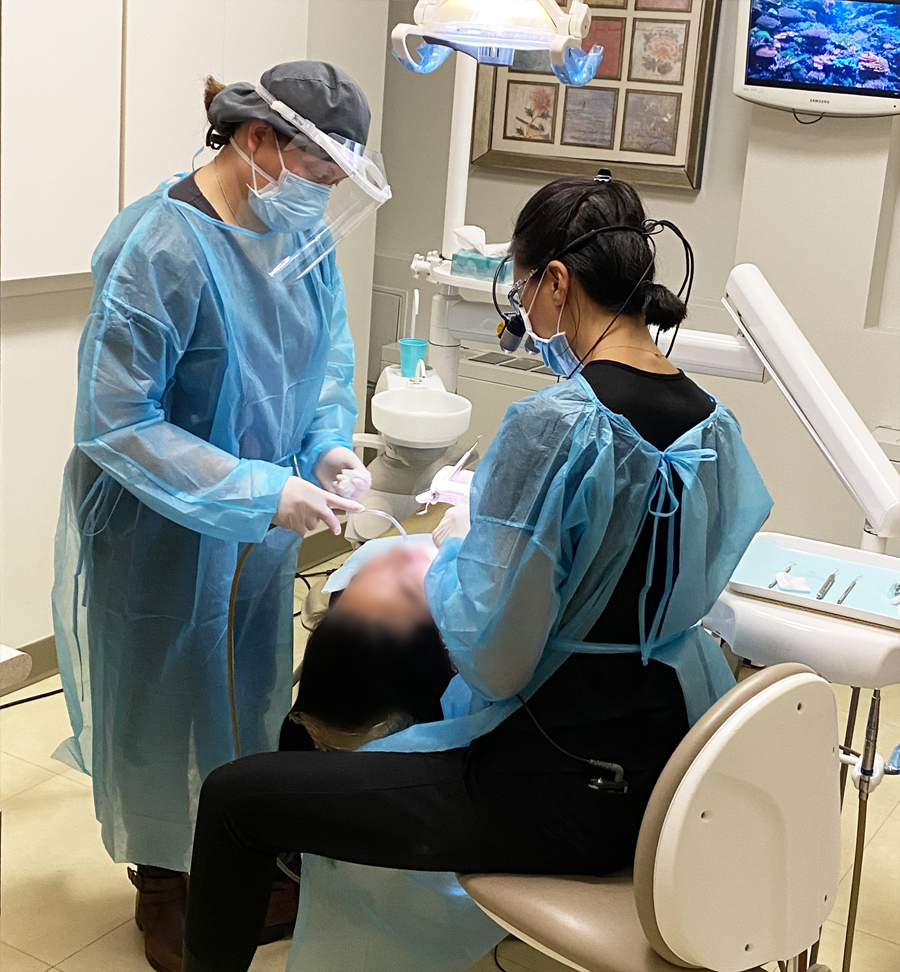Discover Frequent Oral Worries Your Dental Professional Can Fix
Comprehending regular dental problems is important for keeping ideal oral health and wellness. Issues such as cavities, periodontal condition, tooth sensitivity, halitosis, and tooth decay prevail yet typically neglected till they end up being severe. Dental experts have the expertise to diagnose and treat these conditions, thus protecting against additional complications. Routine oral sees and personalized treatment plans can attend to these troubles successfully, ensuring a healthier and brighter smile. What certain treatments do dental professionals use to battle these problems, and just how can early intervention make a difference? The solution to these questions supply valuable understandings into protecting your dental health.
Tooth Cavities
Dental caries, additionally known as tooth decays, are a common oral health and wellness issue created by the demineralization of tooth enamel due to acid manufacturing from bacterial plaque. This process begins when microorganisms in the mouth metabolize sugars and starches from food, generating acids that deteriorate the enamel. If not addressed promptly, this erosion can pass through much deeper into the tooth, influencing the dentin and at some point the pulp, possibly causing severe discomfort and infection.
The onset of dental caries development usually existing as white spots on the tooth surface area, suggesting initial demineralization. As the process advances, these areas can establish right into black or brownish lesions, signifying extra considerable decay. Routine oral check-ups are important for early discovery, as cavities in their incipient stages can be treated with remineralization strategies, such as fluoride therapies.
When a dental caries has created, restorative intervention is necessary. Dental experts commonly eliminate the corroded portion of the tooth and fill up the tooth cavity with products such as composite material, amalgam, or ceramic. In a lot more serious situations, a crown or root canal treatment may be needed. Safety nets, including great oral health practices and dietary alterations, play a critical function in reducing the risk of tooth cavities.
Gum Tissue Disease
While tooth cavities stand for a considerable problem for oral wellness, another vital problem that demands attention is gum disease. Also understood as gum condition, gum illness is an inflammatory problem affecting the tissues bordering and sustaining the teeth. It is primarily triggered by the buildup of plaque-- a sticky movie of bacteria that bases on teeth.
Gum illness advances with stages, beginning with gingivitis, identified by soreness, swelling, and hemorrhaging gums (eugene dentist). If left untreated, gingivitis can intensify to periodontitis, where the internal layer of the periodontal and bone pull away from the teeth, creating pockets that become infected. With time, the toxic substances created by the microorganisms damage down the bone and connective cells that hold teeth in area, possibly causing missing teeth
Very early discovery and treatment are crucial. Expert dental cleanings and boosted oral health methods, such as cleaning two times everyday and flossing, can manage gingivitis. For advanced phases, therapies may consist of scaling and root planing, anti-biotics, or perhaps surgical interventions.
Regular oral examinations play a pivotal function in stopping and handling periodontal illness. Dental experts can determine very early signs and recommend appropriate treatments, making certain the upkeep of healthy and balanced gum tissues and general oral health.
Tooth Sensitivity
Tooth level of sensitivity impacts numerous individuals worldwide, presenting a typical yet usually distressing oral concern. This problem arises when the enamel, the outermost protective layer of the teeth, is jeopardized, exposing the underlying dentin. The dentin contains tiny tubules that lead directly to the oral pulp, where nerves stay. When revealed to stimulations such as hot, cold, pleasant, or acidic compounds, these nerves are set off, triggering sharp pain or pain.
A number of variables add to enamel erosion and succeeding tooth sensitivity, including aggressive brushing, acidic foods and beverages, gum tissue recession, and bruxism (teeth grinding) Furthermore, oral procedures such as teeth whitening can briefly heighten sensitivity.
Foul Breath
An additional widespread dental concern that impacts people' everyday lives is bad breath, medically called halitosis. Halitosis commonly look at this website stems from poor oral health, which allows food fragments to continue to be in the mouth, fostering bacterial growth.

Dental practitioners play a critical role in dealing with and diagnosing halitosis. They can identify the source through a detailed assessment and offer tailored visit homepage suggestions and therapy plans. Suggestions may involve enhancing dental health techniques, such as normal cleaning and flossing, utilizing anti-bacterial mouth washes, staying hydrated, and attending to any oral problems. Sometimes, a referral to a specialist might be needed to take on underlying health issues contributing to foul-smelling breath. Effective management of halitosis not just improves oral health but also dramatically improves lifestyle.
Dental Cavity

Avoiding dental caries entails a mix of great dental hygiene techniques and normal oral check-ups. Cleaning teeth a minimum of twice daily with fluoride tooth paste, flossing to remove plaque in between teeth, and restricting the consumption of sweet foods and drinks are important preventative measures. Fluoride therapies, dental sealers, and professional cleansings supplied by a dental professional can likewise play a significant duty in fortifying enamel and stopping degeneration.
When dental cavity occurs, very early intervention is vital. Dentists can remove decayed tissue and restore the tooth with dental fillings made from materials such as composite resin, amalgam, or porcelain. In more sophisticated situations, treatments like crowns, root canals, or removals may be necessary. By addressing tooth decay immediately, dental experts aid protect dental structure and feature, ensuring lasting dental wellness.
Final Thought
Addressing usual oral concerns such as tooth cavities, gum disease, tooth sensitivity, website link foul-smelling breath, and dental caries is critical for keeping optimum oral health and total wellness. Dental professionals have the know-how to identify and deal with these problems effectively, making sure tailored care for each client. Regular oral exams and safety nets are necessary in identifying and taking care of these concerns early, advertising a healthier and much more confident smile over a lifetime.

Tooth degeneration, additionally recognized as dental cavities, takes place when the enamel, the outermost layer of the tooth, is eroded by acids produced by germs in the mouth. Brushing teeth at least twice daily with fluoride tooth paste, flossing to remove plaque in between teeth, and limiting the consumption of sweet foods and beverages are necessary precautionary actions.Attending to typical oral problems such as cavities, periodontal disease, tooth sensitivity, negative breath, and tooth decay is vital for keeping ideal oral health and wellness and general wellness.